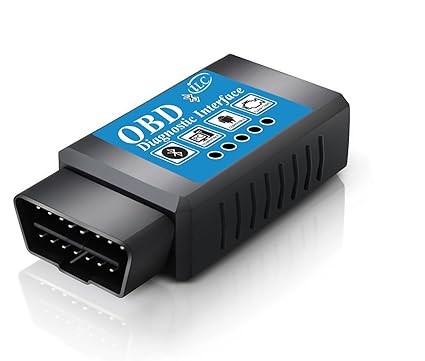Bluetooth OBD2 adapters are handy tools for car enthusiasts and everyday drivers alike. They offer real-time data about your vehicle’s performance, engine health, and much more, right on your smartphone via apps like Torque. But a common question arises: is it safe to leave your OBD2 Bluetooth adapter plugged in all the time? Let’s dive into this and clear up any concerns.
Many drivers appreciate the convenience of always-on access to vehicle diagnostics. Imagine getting instant MPG readouts, monitoring engine temperature, or even recording track day performance without fumbling to plug in a device each time. For these users, leaving the OBD2 adapter in place seems like a no-brainer.
However, the worry about battery drain is legitimate. We’ve all heard stories of car batteries dying from seemingly minor electrical drains, like a forgotten interior light. So, does leaving an OBD2 Bluetooth adapter plugged in pose a similar risk?
Generally, the consensus among car experts and users is that the battery drain from a Bluetooth OBD2 adapter is minimal, often insignificant for a healthy car battery. Many users have reported leaving their adapters plugged in for extended periods – even months – without experiencing any battery issues. The power draw of these devices is designed to be very low.
 OBD2 Bluetooth Adapter
OBD2 Bluetooth Adapter
Image alt text: Compact Bluetooth OBD2 adapter, a small car diagnostic tool, ready for use.
That said, there are a few important considerations and exceptions:
- Vehicle Compatibility Issues: Some older car models, or specific makes like a 2007 Corsa as one user mentioned, might exhibit issues if an OBD2 adapter is left plugged in. These problems can range from preventing the car from starting to other electrical system glitches. If you notice any unusual behavior after leaving your adapter plugged in, unplug it immediately and observe if the issue resolves.
- Adapter Quality and Design: The quality of your OBD2 adapter can play a role. A poorly designed or faulty adapter might draw more power than intended or cause electrical interference. Stick to reputable brands and read user reviews before purchasing.
- Interference with Vehicle Systems: Although rare, some users have reported interference between continuously plugged-in OBD2 devices and their car’s CAN bus system, leading to error codes or malfunctions. If you experience persistent or unexplained issues, try removing the adapter to see if it’s the cause.
Benefits of Leaving Your OBD2 Adapter Plugged In:
Despite the minor risks, the convenience of leaving your OBD2 adapter plugged in can be significant:
- Real-time Monitoring: Continuously monitor vital parameters like engine load, coolant temperature, and intake air temperature.
- Fault Code Detection: Instantly be alerted to any new trouble codes that your car’s computer logs, potentially catching minor issues before they become major problems.
- Performance Tracking: Easily use apps like Torque or RaceChrono Pro to record performance metrics like 0-60 mph times, horsepower, and more, without needing to plug in the device each time.
Best Practices:
- Monitor Initially: If you’re unsure, monitor your car’s behavior and battery health for the first few days after leaving the adapter plugged in.
- Unplug if Storing Long-Term: If you’re storing your car for an extended period (weeks or months), it’s always a good idea to unplug the OBD2 adapter to eliminate any potential drain, however minimal.
- Check Adapter Light: Observe the indicator lights on your OBD2 adapter when the car is off. Some adapters go into a low-power sleep mode, while others might remain active. If the lights stay brightly lit for a long time, it could indicate a higher power draw.
In Conclusion:
For most modern vehicles and quality Bluetooth OBD2 adapters, leaving the device plugged in is generally safe and won’t cause noticeable battery drain. The convenience of constant access to vehicle data often outweighs the minimal risks. However, always be mindful of your car’s behavior, especially if it’s an older model, and consider unplugging the adapter if you have any concerns or are storing your vehicle long-term. By understanding the potential issues and benefits, you can make an informed decision about leaving your OBD2 Bluetooth adapter plugged in.